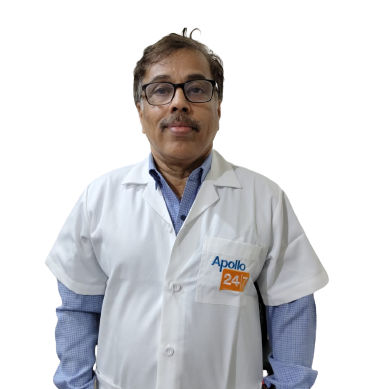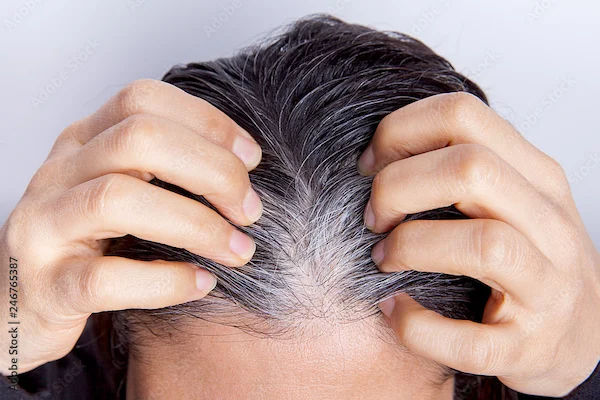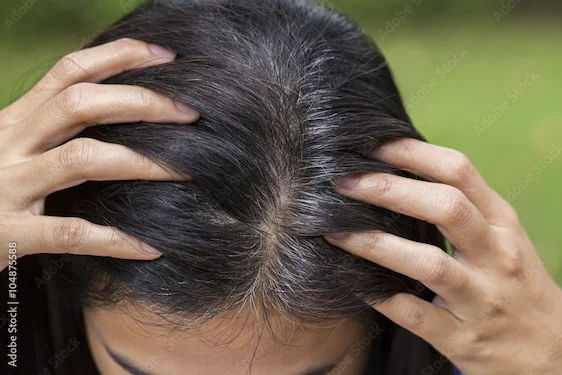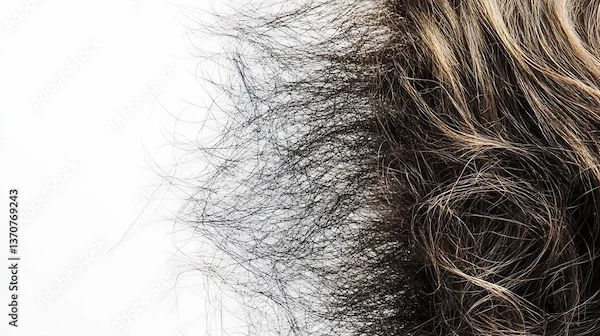How To Reduce Hair Fall?
Learn about hair fall and its causes and discover the effective ways to reduce it. Explore how lifestyle factors, medical treatments, home remedies and prevention strategies can help reduce hair fall and promote healthier hair.

Written by Dr. Sonia Bhatt
Last updated on 3rd Jul, 2025

Introduction
Hair fall is one of the most common concerns that has affected millions of people across the world, with individuals experiencing varying degrees of hair loss due to multiple factors. While shedding of a few strands of hair is considered natural, excessive hair fall can be distressing and indicative of underlying issues. Understanding the nature of hair loss, its causes and effective ways to manage it is crucial for maintaining strong and healthy hair.
Understanding Hair Fall
Hair fall refers to the act of hair strands shedding naturally from the scalp. This is considered to be a normal part of the hair growth cycle. However, when a noticeable amount of hair falls out excessively beyond the typical daily shedding rate, it is considered “hair loss” or “alopecia.” This could indicate an underlying medical condition. Hair fall can manifest in different ways, from general thinning to noticeable bald spots or sudden shedding. While some individuals may experience temporary hair fall due to seasonal changes or stress, others may suffer from chronic or hereditary hair loss, which requires a more in-depth approach.
The Hair Growth Cycle
The hair growth cycle has four stages – anagen, catagen, telogen and exogen.
Anagen
This is the active growth phase of hair follicles, where they take on an onion-like shape. Cells of the bulb divide rapidly and result in new hair growth. This is the longest phase, lasting about 2–8 years, during which the hair actively grows from the hair follicle. This means the longer the anagen phase lasts, the longer the hair can grow. This phase differs with different types of hair. For example, the anagen phase for eyebrow hair and pubic hair is shorter than the phase for scalp hair.
Catagen
This is the transition phase, where hair growth slows down and tends to last about two weeks. The hair follicle shrinks and separates from the blood supply. Only about 1%-3% of the hair on the head are in the catagen phase at any given time, says a study.
Telogen
This is the resting phase, which typically lasts 2–3 months. About 9% of the scalp hair is in this phase. Hair does not grow during this phase, but it doesn’t usually fall out either. This phase is where new hair starts to form in follicles that have just released hair during the catagen phase.
Exogen
This is the shedding phase, where old hair is pushed out by new hair growth. It is essentially an extension of the telogen stage. During the exogen stage, hair is shed from the scalp, with washing and brushing often accelerating the process. Losing 50 to 100 hair per day during the exogen phase is normal. During this phase, which can last several months, new hair grows in the follicles as old hair falls away.
Common Causes of Hair Fall
Several factors can contribute to hair fall; some of the most common causes include:
Hormonal Imbalance: Conditions like pregnancy, menopause, thyroid and polycystic ovary syndrome (PCOS) can trigger hair shedding.
Genetics: A family history of baldness can make individuals more prone to hair loss, which is also often referred to as androgenetic alopecia.
Poor Nutrition: Deficiencies in essential nutrients such as protein, iron, and biotin can weaken hair strands and increase shedding.
Stress: Physical or emotional stress can cause excessive hair fall by disrupting the hair growth cycle.
Colouring and Hairstyling Treatments: Frequent hair colouring and certain types of harsh hairstyling can contribute to hair fall, primarily by damaging the hair shaft and causing breakage. This makes it more prone to shedding rather than directly causing permanent hair loss from the root.
Understanding these causes is the first step toward effective prevention and treatment.
Signs of Hair Fall in Women, Men, and Children
Signs of hair fall vary between women, men, and children. The signs of hair fall in women may include:
General hair thinning, especially at the crown of the head.
Hair may fall out in clumps.
Scalp skin may get more visible through the hair.
Circular or patchy bald spots can appear.
The signs of hair fall in men may include:
Thinning hair on the scalp.
A receding hairline.
A horseshoe-shaped pattern that leaves the crown of the head exposed.
The signs of hair fall in children and young adults may include:
Complete loss of hair on the body.
Sudden loss of hair patches on the scalp.
Excessive hair shedding but not complete baldness after various illnesses, drug treatments, anaemia, stress, or rapid weight loss.
Patches of broken hair and incomplete hair growth on the scalp and/or eyebrows.
Medical Treatments and Therapies for Reducing Hair Fall
There are topical treatments as well as surgical options that can help treat hair fall.
Medications and Topical Treatments
Minoxidil is an FDA-approved topical treatment widely used to promote hair regrowth. Other medications, such as finasteride, are prescribed for genetic hair loss in men.
Surgical Options for Treating Hair Transplants
For severe cases of hair loss, procedures like follicular unit extraction (FUE) and follicular unit transplantation (FUT) can provide long-term solutions by restoring hair density through surgical implantation of hair follicles.
Consult Top Dermatologist For More Information
Home Remedies for Reducing Hair Fall
Effective home and natural remedies for treating hair fall include:
Herbal Treatments
Herbs like hibiscus, amla and aloe vera are known for their hair-strengthening properties. DIY herbal hair masks and treatments can help improve hair texture and minimise hair fall.
Essential Oils and Natural Oils
Oils such as castor, rosemary, and coconut oil have been proven to nourish the scalp. They help strengthen hair follicles and reduce breakage. Regular scalp massages with these oils can stimulate hair growth.
Hair Care Practises to Reduce Hair Fall
Below are a few hair care practises that can help in reducing hair fall:
Proper Hair Washing Technique
Washing hair too frequently or with hot water can strip it of natural oils, making it prone to breakage. Hence, it is essential to use a mild shampoo and gently massage the scalp to promote blood circulation and hair growth. Additionally, conditioning the hair properly can prevent dryness and split ends.
Right Hair Care Products
Choosing proper hair care products depends on hair texture and scalp. Products free from sulphates, parabens, and harsh chemicals can protect hair from damage. Thus, it is essential to opt for nourishing shampoos, conditioners, and serums that can suit individual hair types and help significantly reduce hair fall.
Balanced Nutrition for Reducing Hair Fall
It is essential to follow a particular diet to help reduce hair fall.
Foods Promoting Hair Growth
A diet rich in leafy greens, seeds, nuts, fish, and lean proteins can support hair growth. Omega-3 fatty acids in flaxseeds and fish can contribute to stronger and shinier hair.
Vitamins and Minerals
Vitamins A, C, D, and E, along with minerals like zinc and iron, can play a vital role in promoting hair growth. Deficiencies in these nutrients can weaken hair and increase shedding.
Prevention Strategies
Gentle hair brushing, regular scalp massages, avoiding frequent colouring and excessive heat styling can prevent hair damage and shedding. A holistic approach, including adequate hydration, sleep, and stress management, is essential in preventing hair loss.
Conclusion
Hair fall can be managed effectively through a combination of proper hair care routine, home remedies, balanced nutrition, and medical interventions. For persistent or severe hair loss, it is crucial to consult a dermatologist to ensure appropriate diagnosis and treatment. By adopting these mindful practises, individuals can effectively minimise hair fall and maintain healthier hair over time.
Consult Top Dermatologist
Consult Top Dermatologist

Dr. S Madhuri
Dermatologist
10 Years • MBBS, MD. DVL, DNB, Fellow (Dermatosurgery & Lasers)
Secunderabad
Apollo Hospitals Secunderabad, Secunderabad
(375+ Patients)

Dr Abhineetha Hosthota
Dermatologist
9 Years • MBBS MD
Bengaluru
Apollo Clinic, JP nagar, Bengaluru

Dr. Himabindu Mamidala
Dermatologist
11 Years • MBBS, DDVL
Hyderabad
DrHIMABINDUS SKIN CLINIC AND LASER CENTRE, Hyderabad

Dr. Chandrashekhara Aithal
Dermatologist
33 Years • MBBS, DVD SKIN & STD
Bengaluru
Smruthi ENT & Multi Speciality Centre, Bengaluru

Dr. Shruthi C
Dermatologist
12 Years • MBBS, MD (DVL)
Bengaluru
Skin And Recon Dermatology & Plastic surgery clinic, Bengaluru
Consult Top Dermatologist For More Information

Dr. S Madhuri
Dermatologist
10 Years • MBBS, MD. DVL, DNB, Fellow (Dermatosurgery & Lasers)
Secunderabad
Apollo Hospitals Secunderabad, Secunderabad
(375+ Patients)

Dr Abhineetha Hosthota
Dermatologist
9 Years • MBBS MD
Bengaluru
Apollo Clinic, JP nagar, Bengaluru

Dr. Himabindu Mamidala
Dermatologist
11 Years • MBBS, DDVL
Hyderabad
DrHIMABINDUS SKIN CLINIC AND LASER CENTRE, Hyderabad

Dr. Chandrashekhara Aithal
Dermatologist
33 Years • MBBS, DVD SKIN & STD
Bengaluru
Smruthi ENT & Multi Speciality Centre, Bengaluru

Dr. Shruthi C
Dermatologist
12 Years • MBBS, MD (DVL)
Bengaluru
Skin And Recon Dermatology & Plastic surgery clinic, Bengaluru




